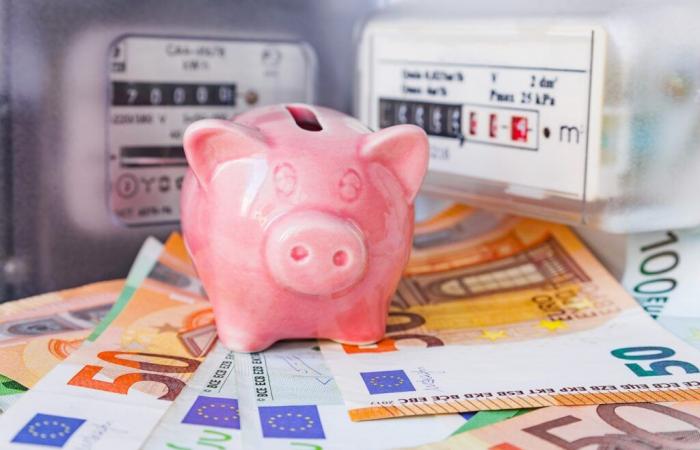Since the start of 2025, the French have been facing a surge in gas prices. From January, a first significant increase was applied, and could be followed in February by a new increase which confirms a worrying trend on the energy market.
January 2025: A first increase in the price of gas difficult to digest
From January 1, 2025, consumers noted a 12% increase in gas reference prices, the benchmark price of the Energy Regulatory Commission (CRE). This jump immediately had repercussions on bills, already high after successive increases in previous months. Several reasons explain this surge, starting with strong winter demand. The particularly cold temperatures recorded at the end of 2024 have significantly increased gas consumption for domestic and industrial heating.
Furthermore, the international context played a major role. The war in Ukraine, which has disrupted Russian gas flows to Europe since 2022, continues to exert significant pressure on available supply. Restrictions on liquefied gas (LNG) imports from the United States and Qatar, imposed by logistical constraints and geopolitical tensions, have only worsened the situation. European operators, keen to secure their supplies, have had to resort to purchasing at high prices on the spot market, further increasing the cost for end consumers.
The French authorities, aware of the impact of this increase on households, have cited the need to adapt regulated prices to the reality of supply costs. If measures such as the tariff shield made it possible to cushion certain shocks in 2023, the State’s limited budgetary margins in 2025 complicate the implementation of new mitigation measures.
February 2025: A worsening energy crisis and a new surge in prices
While households were just beginning to adjust to this new situation, February 2025 will bring a new increase of 6% in gas prices according to calculations carried out by Selectra. This second adjustment will increase the weight of energy bills on household budgets. The continuation of this trend can be explained by several factors.
First, strategic gas reserves in Europe, already severely tested by the harsh winter, were rapidly reduced. The European Union, which had built up significant stocks in the summer of 2024, is struggling to maintain a sufficient level to meet demand.
Then, geopolitical tensions remain a major problem. Negotiations between Russia and European countries on the conditions of gas transit via Ukraine were unsuccessful, increasing uncertainties over the stability of supplies. At the same time, producers in the Middle East, notably Qatar, are favoring Asian customers willing to pay higher prices, further reducing the supply available to Europe.
Finally, investments in gas infrastructure have stagnated in recent years, limiting liquefied gas import capacity. LNG terminals, saturated during peak periods, cannot compensate for failures in gas pipeline supply.
The consequences for households: uno pressure moreover on purchasing power
The successive increases in gas prices in 2025 will have direct and profound repercussions on the daily life of French households. For many households, energy costs now represent an overwhelming part of their budget. Low-income households, in particular, find themselves on the front lines of this crisis, unable to absorb these increases without reducing other essential expenses such as food or leisure.
The aid measures, although useful, prove insufficient to fully offset the impact of these increases. Energy vouchers, distributed each year to nearly 5.8 million households, have not been increased to reflect the explosion in costs. Additionally, households that rely exclusively on gas for heating are particularly penalized, as they cannot easily switch to more economical alternatives, such as electric heating or wood stoves.
This situation also fuels a feeling of injustice and frustration among consumers. While the profits of large energy companies continue to grow, French households have the impression of bearing the burden of this crisis alone. Some denounce the lack of stricter regulation of energy prices and call for emergency government measures to cap prices.
Gas, electricity, energy… What prospects for the future?
The year 2025 promises to be difficult for energy consumers, and the price of gas is not expected to come down for several months. Experts predict that global market tensions could persist until winter 2026, depending on the evolution of geopolitical conflicts and the capacity of European countries to diversify their sources of supply.
Faced with these challenges, it is imperative that public authorities and sector players work together to find sustainable solutions. Among the measures envisaged are an acceleration of investments in renewable energies, better coordination of energy policies at European level and increased aid to households in difficulty.
In the meantime, consumers are invited to adopt simple actions to reduce their gas consumption, such as precise regulation of heating or thermal insulation of homes.
The rise in gas prices in January and February 2025 reflects a global energy crisis whose repercussions are being felt hard at the national level. If this situation highlights the fragility of the European energy system, it also underlines the urgency of a transition towards more sustainable and resilient models.






